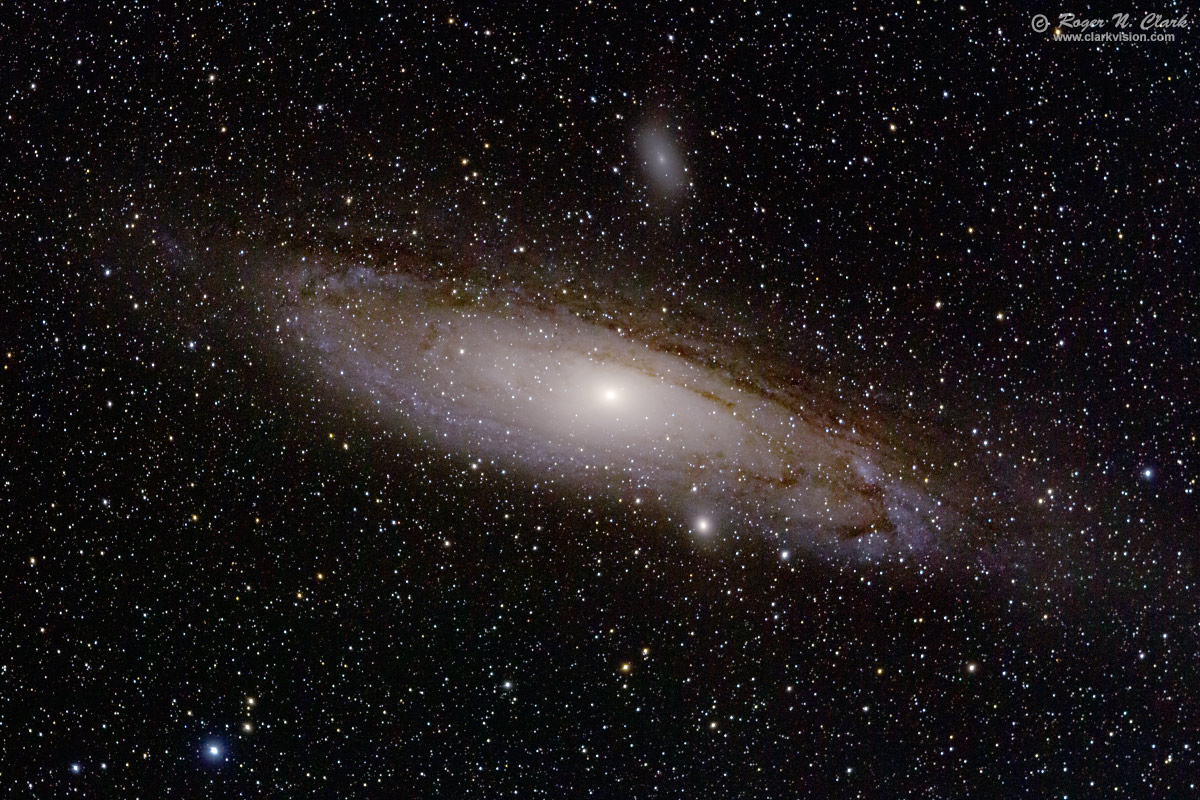| Home | Galleries | Articles | Reviews | Best Gear | New | About | Contact | Gallery Index | Previous |
Next |

| Home | Galleries | Articles | Reviews | Best Gear | New | About | Contact | Gallery Index | Previous |
Next |

The Andromeda Galaxy, M31, is a spectacular large galaxy and close to the Milky Way. This image shows the dust in the spiral arms, and the different populations of stars in the core of the galaxy (population I, yellower stars) and in the outer spiral arms (bluer stars, population II, which tend to be older). The long angular length of the galaxy shown here is about 6 times the angular diameter of the full Moon.
Technical. Canon 7D 18-megapixel digital camera, Canon 300 mm f/2.8 II lens at f/2.8. 17 one-minute exposures at ISO 1600 were added (17 minutes total exposure). No dark frame subtraction, no flat fields, no noise reduction. Tracking with an astrotrac. Slight crop.
The Exposure Factors, CEF, CEFA are measures of the relative amounts of light received from a subject. It can be used to fairly compare wildly different lens/telescope apertures and exposure times. For this image:
Modern DSLRs like the 7D include on sensor dark current suppression and low fixed pattern noise at ISOs around 1600 and higher, making no need for dark frame subtraction. Modern raw converters correct for light fall-off and also correct for hot/dead/stuck pixels. This makes processing low light images easy: simply align and average.
To learn how to obtain stunning images like this, please visit my Extensive Articles on Photography .
Keywords to this image = astrophoto-1 galaxy Messier night low-light digital_astro
Image ID: m31_300mm.17min.c09.26.2014.IMG_2327-44.g-bin3x3s.jpg
| Home | Galleries | Articles | Reviews | Best Gear | Science | New | About | Contact |
Last updated April 02, 2025